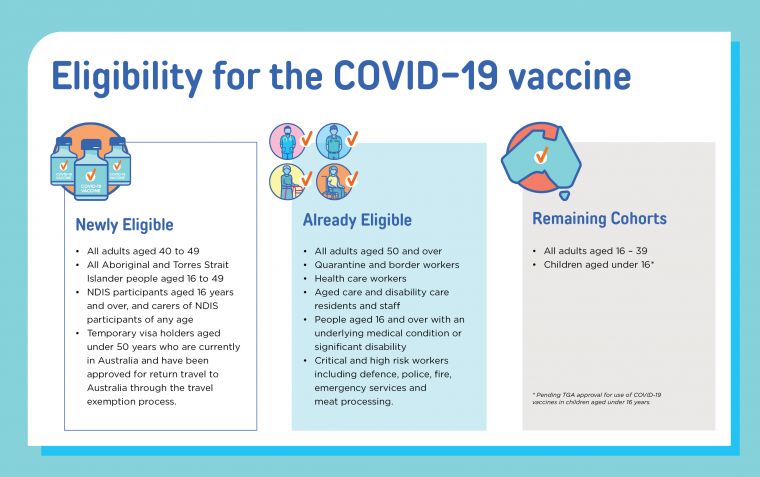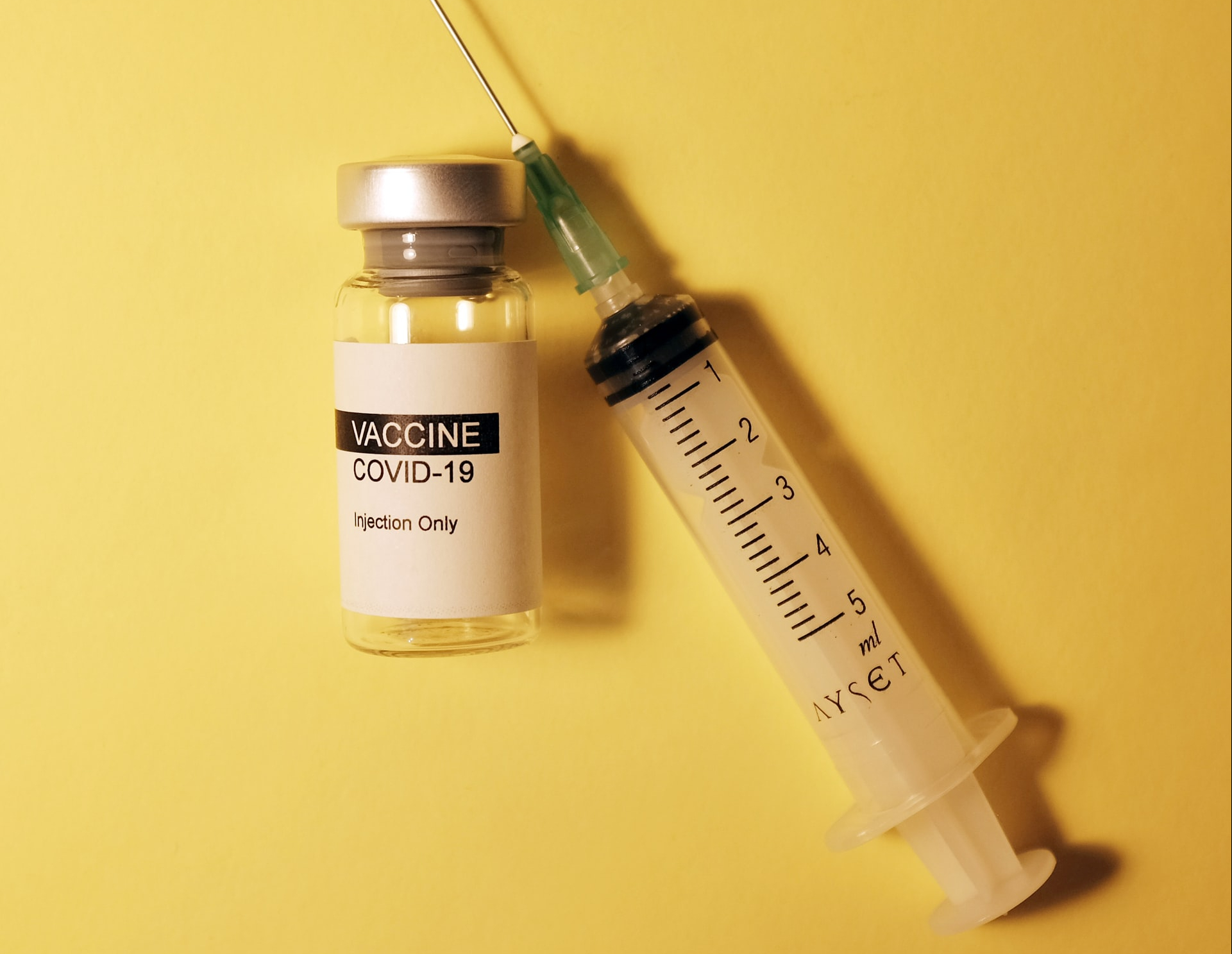The Covid-19 Vaccine and International Students
From February 2021, the COVID-19 vaccination has been rolled out stage by stage. According to the Health Department’s original plan, the vaccine roll-out would be divided into three phases, with the first two subdivided into phases A and B.

Chart of Covid-19 vaccine national roll-out strategy. Source: Australian Government Department of Health
Since May 17, the promotion of the COVID-19 vaccine has wholly entered phase 2A, and the next phase is phase 2B when most young people between the ages of 19 and 39 can get the vaccine.

Chart of Eligibility for the Covid-19 Vaccine. Source: Australian Government Department of Health
In Phase 2B, all Australian young adults, including international students, can get the Pfizer vaccine at state and territory clinics.
But confirmed dates for phase 2B are nowhere in sight, as Australia is currently pausing walk-ins and first-dose bookings, due to the short supply of vaccines as well as people who have special exemption or needs, and those who are due for their second booking, given priority.
Professor Benjamin Cowie from the Department of Health said in a live information session that it is not possible to determine when international students will be able to get the vaccine since Australia only receives vaccine allocations for five weeks at a time. The best estimate he could give was the fourth quarter of the year, though it also can’t be confirmed.
But he assures that everyone – including international students – are eligible to get the vaccine: “Everybody that’s in the geography in Australia is eligible… It’s just the other eligible criteria.”
The Vaccine Eligibility Checker is available from the Department of Health to help people check whether they are eligible for a vaccination and to make vaccination appointments.
The viewpoints about vaccination
For the upcoming vaccine, international students in Australia have shown varying degrees of concern.
Jinhe Yang is a Master’s student studying mechanics at the University of Melbourne. According to Jinhe, he is not paying much attention to the vaccine rollout in Australia currently.
As Jinhe said, the COVID-19 situation is stable and the vaccine is rolling out in an orderly way; all he has to do is wait. “Anyway, it will be our turn to be vaccinated after some time, so we just need to do it as scheduled by the government,” Jinhe said.
Additionally, Jinhe also expressed confidence in the vaccine. He says he will get the vaccine as soon as he is informed that for international students it’s available.
But Jinhe said he would check if he was physically fit to get the vaccine before he gets vaccinated. He is susceptible to allergies. Therefore: “Before vaccination, I will probably go online to check if there are any cases of young people with an allergic physique having problems with the vaccination. I am a little worried about this.”
Yurou Liang, an undergraduate international student studying urban design at the University of Melbourne, felt hesitant in getting the vaccine immediately. However, she said that she would go for the vaccine after seeing other young people vaccinated without any problems.
“Partly because of patriotism, and partly because I trust the Chinese government more, if possible I still hope to be vaccinated in China.” She is not particularly confident about the Australian COVID-19 vaccine.
Before being vaccinated, Yurou wants to learn more about Australia’s vaccines. She has not learned the characteristics of different COVID-19 vaccines in detail yet. “When I learn more about the vaccines available in Australia, I might be more at ease about it,” she said.
Tanya Gupta is an international student from India studying nursing in Melbourne. She still wants more proof and information about the vaccine’s success rate. Her concern about vaccines stems from her fear that they will not work properly. As she said, “Because I am a health student, I know a vaccine does not guarantee [immunity]. It is just a precautionary measure.”
Tanya also said that what she cares about most is the success rate and effectiveness of the COVID-19 vaccine.
What do I need to know?
It takes two doses of the Pfizer COVID-19 vaccine to get long-term protection. An effective immunity usually develops a few weeks after two doses of the vaccine are administered. However, the duration of the protection period is still under experiment and observation.
Yes, you might experience symptoms such as tiredness, headache, fever and nausea with the first and second dose of the vaccine. It is a common side effect of vaccination and it means that the body is building protection and that the vaccine is working.
But, if you have a severe reaction and need to go to the hospital, Professor Cowie has assured that you will not be liable for the hospital cost.
“If someone has no Medicare and experiences symptoms from a vaccine and needs to go to a hospital, they are fully covered,” he said.
If you have further questions about the COVID-19 vaccine, you can consult via the following channels:
- Email the Department of Education, Skills and Employment: international.students@dese.gov.au.
- Call the international student hotline: 1300 981 621 (8am to 8pm, Monday to Friday).
Both the Australian Government Department of Health and Melbourne vaccine Education Centrewill update timely news and information related to COVID-19 vaccines.
